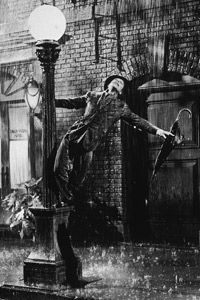In the United States, choral singing is the most popular of all arts-related participatory activities [source: CA]. Across the country, 28.5 million people regularly sing in one of 250,000 chorus groups [source: CA]. It's a group activity that seems to stand the test of time better than others, and there may be a very good reason why: Singing has some effects that other participatory activities don't.
It has become pretty obvious in the last couple of decades that singing has special draws. Regular people all over the globe are addicted to karaoke singing. And many of those people can't even carry a tune. Bars use it to draw customers on slow nights: People will come if they can sing for a crowd. People will watch others sing for a crowd, too -- "reality" competitions like "American Idol" and "X Factor," two of the most popular shows in the United States and around the world, respectively, are all about singing.
Advertisement
Of course, some of the competitors on those shows can actually sing really well. It's clear why people are drawn to them. But what's the draw for somewhat-less-talented singers to belt out a tune? Why the huge interest in karaoke? Why all the singing in the shower, in the car, in the chorus? Does singing make people happy?
In this article, we'll find out what effect singing has on mood, outlook and general psychological health. We'll look specifically at choral singing, which is where the most recent and surprising research has been done. Apparently, choral singing, whether with a church, city or private group, really does make people happy.
The physiological effects of singing are fairly well-documented. For those who doubt its power, just look at songbirds: When male songbirds sing to female songbirds, it activates the pleasure center of the male's brain. In fact, scientists have discovered that the effect of singing on the birds' brains is similar to the effect of addictive drugs on human brains [source: EurekAlert]. But there's a caveat. That effect doesn't happen when the birds are singing alone.
As it turns out, singing's effect on humans has a similar caveat.





